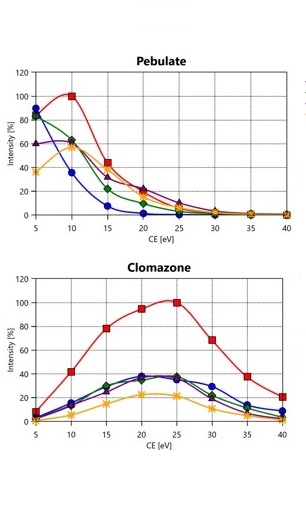

Low-pressure gas chromatography (LPGC) combined with quadrupole tandem mass spectrometry can be used to significantly reduce GC–MS/MS analysis time of complex mixtures. The theory of LPGC will be presented, followed by an explanation of a new short collision cell technology. Experimental data from the analysis of over 240 pesticides using LPGC will be shown with a subsequent discussion of how the two technologies complement each other and some of the options available for tailoring the analysis.
Key Learning Objectives:

Dr. Jensen attended Colorado School of Mines starting in 2008 for graduate studies. During his time in graduate school, he studied mass spectrometry under Dr. Kent Voorhees at Colorado School of Mines. His dissertation work included analysis of NPAH’s in biofuel combustion, development of an LFI strip to detect Bacillus anthracis using bacteriophage amplification, and multivariate statistical analysis of MOLI mass spectral data of various bacteria for the purposes of identification. He received a PhD in Applied Chemistry from Colorado School of Mines in December, 2014.
He then took a position as a research scientist at Osaka University, and was promoted to assistant research professor after two years. He started at JEOL USA, Inc. as an applications chemist in 2019, and his current projects involve the JMS-TQ4000GC triple-quad mass spectrometer.